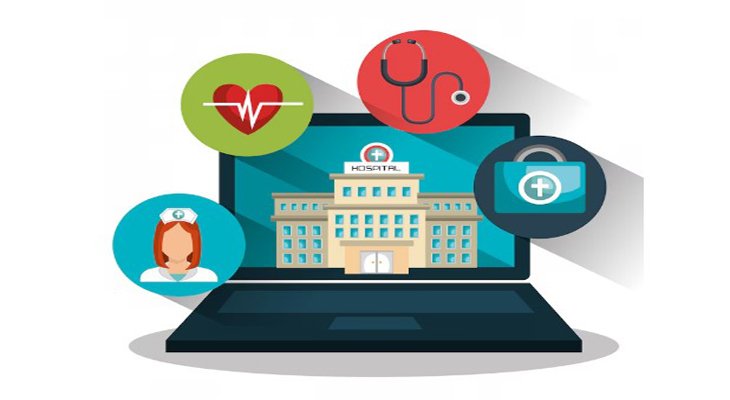
Is Amazon Web Services Approved by the Department of Health and Human Services?
Cloud services refer to the delivery of different services over the Internet, including data storage, servers, databases, networking, and software.
The U.S. Department of Health and Human Services (DHHS) is an executive department responsible for enhancing the health and well-being of all Americans.
It places a high priority on the security and compliance of the cloud services it uses, given the sensitive nature of the health data involved.
Understanding Amazon Web Services (AWS)
Amazon Web Services (AWS) is a comprehensive and widely adopted cloud platform. It offers over 200 fully featured services from data centers globally.
AWS provides a robust, scalable, and cost-efficient solution for hosting applications. Many organizations, including those in healthcare, utilize AWS for various applications due to its flexibility, scalability, and extensive global network.
DHHS’s Requirements for Cloud Services
Security Protocols
The DHHS mandates strict security protocols for cloud services to ensure the protection of sensitive health information.
AWS supports several security standards and compliance certifications which make it a viable option for DHHS. AWS’s security tools and features ensure that data is encrypted, both at rest and in transit, and provides configurations that help in safeguarding applications against potential threats.
Compliance and Regulations
DHHS requires that any cloud service provider complies with health-related regulations and standards, such as HIPAA (Health Insurance Portability and Accountability Act).
AWS is HIPAA compliant and offers a HIPAA-focused content that helps customers understand how to secure and protect patient information under U.S. law. Furthermore, AWS provides features that help customers meet other compliance requirements necessary for working with health data.

The Approval Process of DHHS
Application Process
For a cloud service provider like Amazon Web Services (AWS) to be considered by DHHS, there is an initial application process that involves submitting detailed documentation of the service’s architecture, security features, and compliance certifications.
This documentation must clearly demonstrate how the service adheres to federal regulations relevant to health data, such as HIPAA. Providers must also illustrate their ability to protect and securely handle sensitive personal and health-related information.
Evaluation Criteria
The evaluation criteria set by DHHS for approving cloud services include a thorough assessment of the service’s security measures, data integrity, and the provider’s track record with handling health data.
The criteria also involve assessing whether the cloud service can offer encryption, data loss prevention, and other critical security features.
Compliance with national standards like HIPAA is non-negotiable, and the service must also show that it can support DHHS’s mission to enhance and protect the health and well-being of Americans.
While DHHS does not officially endorse specific cloud service providers, it does approve the use of services that meet these criteria.
AWS, with its extensive compliance certifications and security protocols, often meets these requirements, making it a viable option for organizations that interact with DHHS and handle health-related data. Thus, while DHHS does not specifically approve AWS, its features align with the department’s standards, enabling its use under DHHS regulations.
Benefits for DHHS Using AWS
Using AWS offers several benefits for DHHS, particularly in terms of scalability, security, and compliance. AWS allows DHHS to leverage a secure environment that can scale based on the demand without compromising the security of sensitive data.
The robust security measures provided by AWS, including data encryption at rest and in transit, advanced threat detection, and comprehensive compliance frameworks, support DHHS’s needs for protecting personal health information.
Furthermore, AWS’s extensive suite of tools can aid DHHS in achieving more efficient data processing and storage solutions, enhancing the overall efficiency of services provided to the public.

Case Studies and Examples of AWS in Healthcare
Hosting Electronic Health Records
Amazon Web Services has been extensively utilized for hosting electronic health records (EHRs), which are pivotal for modern healthcare systems. AWS provides a secure environment where these records can be stored, accessed, and managed with strict adherence to privacy regulations.
The use of AWS for EHRs demonstrates the platform’s capability to handle high volumes of sensitive data under regulatory requirements set by the Department of Health and Human Services (DHHS).
Patient Management Systems
AWS also supports patient management systems that are crucial for the efficient operation of healthcare facilities.
These systems, when hosted on AWS, benefit from its scalable infrastructure and robust security protocols, ensuring that patient data is protected and that the systems remain operational and responsive.
This use case underscores AWS’s ability to meet the DHHS’s stringent security and privacy standards, providing a dependable platform for critical healthcare operations.
Handling Health-Related Data
In addition to EHRs and patient management systems, AWS has been applied in various other health-related data applications, such as data analytics for health monitoring and predictive modeling.
These implementations showcase AWS’s strength in offering tools and services that comply with DHHS regulations, helping healthcare providers leverage cloud computing to improve care delivery and patient outcomes.
Future of Cloud Services in Government Sectors
The future of cloud services in government sectors, particularly within agencies like DHHS, is poised for significant expansion. As cloud technologies continue to evolve, offering more sophisticated security features and enhanced compliance capabilities, their adoption within government and healthcare sectors is likely to increase.
For DHHS, utilizing services like AWS can facilitate more agile data management, improve the efficiency of health services, and support the implementation of advanced technologies like artificial intelligence and machine learning in healthcare.
The alignment of AWS’s offerings with the strict compliance and security requirements of the government will continue to be crucial as DHHS and similar agencies expand their reliance on cloud solutions to meet their operational needs and service missions more effectively.

Conclusion
Investigating whether the Department of Health and Human Services (DHHS) approves Amazon Web Services (AWS) for managing health-related data demands a deep understanding of regulatory compliance and the particular requirements of government agencies dealing with sensitive information.
This inquiry is complex, involving detailed knowledge of the standards set by DHHS and how AWS conforms to these regulations. The focus is not just on general approval but on specific compliance with health data protection standards.
Agencies need to ensure that AWS’s security measures and data handling capabilities align with DHHS mandates. Thus, understanding the intersection of AWS’s offerings with DHHS’s regulatory framework is crucial.
Key Takeaways
- DHHS’s Stance on Cloud Service Providers:
- DHHS does not explicitly approve or endorse specific cloud service providers, including AWS.
- It establishes compliance requirements that all cloud services must meet to be used by entities under its regulation.
- AWS’s Compliance with DHHS Standards:
- AWS complies with crucial health-related regulations such as HIPAA.
- AWS has proven its capability to meet DHHS’s stringent requirements through its adherence to relevant security and privacy standards.
- Evidence from Practical Use:
- Various case studies indicate that AWS’s tools and services are effectively employed in scenarios that require DHHS compliance.
- AWS offers robust security measures and reliable performance, making it suitable for managing sensitive health data.
- Future Role of Cloud Services in Government:
- The evolution of cloud technology and growing demand for secure data management solutions suggest a continuing role for platforms like AWS in government sectors.
- AWS’s scalability, security features, and compliance capabilities align well with the operational needs and regulatory standards of agencies like DHHS.
- Impact of AWS on Government Services:
- AWS is likely to remain a crucial component in the digital transformation of government services, particularly in healthcare and government data management.
- Despite the lack of formal approval, AWS’s alignment with DHHS requirements makes it a favorable choice for these sectors.
Frequently Asked Questions
Does DHHS explicitly approve AWS for use in handling health data?
DHHS does not explicitly approve any specific cloud service providers, including AWS. Instead, it sets compliance standards that any cloud service must meet to be used by entities regulated by DHHS.
What standards must AWS meet to be used by DHHS-regulated entities?
AWS must comply with health-related regulations such as the Health Insurance Portability and Accountability Act (HIPAA). Compliance with HIPAA ensures that AWS can be used to manage and protect health data appropriately.
Can organizations regulated by DHHS use AWS?
Yes, organizations regulated by DHHS can use AWS provided AWS services are configured to comply with HIPAA and other relevant regulations. AWS offers specific configurations and documentation to help organizations achieve and maintain compliance.
What are the benefits of using AWS for DHHS-regulated data?
AWS offers scalable, secure, and cost-effective solutions for data storage and management, which includes strong security measures such as data encryption and detailed access controls. These features make it suitable for organizations that need to handle sensitive health data in compliance with DHHS requirements.
How does AWS ensure compliance with DHHS standards?
AWS provides a range of security and compliance tools that organizations can use to protect data, monitor compliance, and manage risks. AWS also undergoes independent third-party certifications and audits to demonstrate compliance with various standards, including those relevant to healthcare.
Where can I find more information about AWS and DHHS compliance?
Information about AWS compliance, including details specific to healthcare and DHHS requirements, can be found on the AWS Compliance webpage. Additionally, AWS provides resources like whitepapers and guides on configuring AWS services to meet HIPAA and other regulations.

As a seasoned professional with a unique blend of skills in Computer Design and Digital Marketing, I bring a comprehensive perspective to the digital landscape. Holding degrees in both Computer Science and Marketing, I excel in creating visually appealing and user-friendly designs while strategically promoting them in the digital world.

